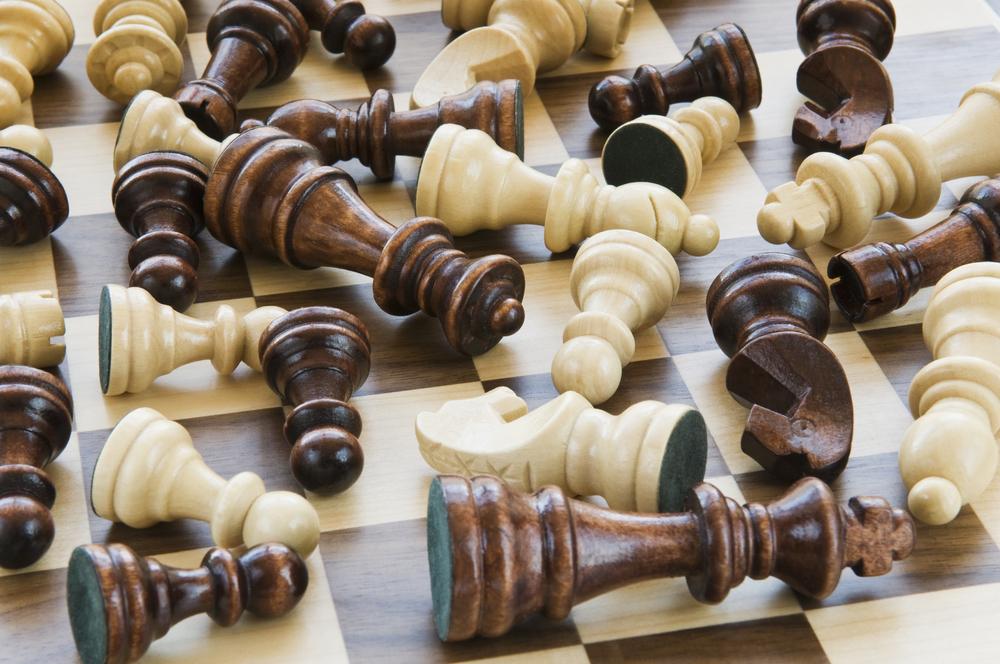
How To Avoid Hanging Stuff
The Chess.com member KayOneM asked about the pros and cons of his games and how he can improve his play. He also mentioned that “in some positional games, when I don’t have any tactics or tricky attack, I don’t know how to improve my pieces.”
Let’s leap into KayOneM’s games and see what is really going on.
The following position is very nice for White since he has more central and queenside space, and he also has two bishops. Thus:
However, instead of 13...h6 Black played 13...b6, leading to the following position:
Okay, you can’t get far in chess if you don’t notice vulnerable pawns and pieces in the enemy camp. But perhaps that was a one-time thing. Let’s look at another game.
KayOneM plays a lot of 5-minute chess, but if he wants to improve he needs longer time controls (I was pleased that he has been playing some longer games, which in the long run will help his “hanging pieces disease”).
After looking at quite a few of his games, it was clear that his problem isn’t positional, it’s simply a lack of keeping his pieces safe. Of course, he does need to improve his positional understanding (doesn’t everyone?), but you can’t get anywhere in chess if you keep hanging pieces. Thus, don’t worry about your weaknesses in other areas.
Instead, everyone needs to cure the “I just hung a piece syndrome” and only then can anyone step into the world of advanced tactics and positional concepts.
In a way it’s like a parent wanting a newborn to run. The child can’t run if it doesn’t know how to walk. So, if you notice that you have a tendency to drop stuff, you need to do everything possible to fix it.

How do you fix it? By making a promise to yourself that you will make sure any of your pieces and pawns placed past the third rank are protected by a piece or pawn or, if you’re completely in tune with the position, know (100 percent) that though your piece is undefended, the opponent won’t be able to take advantage of it.
By hammering this mentality into your head over and over you will eventually find that you have stopped giving things away (With the odd slip from time to time. Everyone hangs stuff sometime.).
Here’s one more example:
KayOneM (playing Black) is in trouble, but he really should pay attention to his spider sense regarding the b4-bishop. Yes it’s defended by the c6-knight, but if one other attacker can hit b4 then a piece will vanish and the game will end. Of course, doom might not occur if you are aware of the weakness of the b4-bishop, but if you’re blind to the possibility of the b4-bishop running into a landmine then chances are you’ll walk right into a knockout blow.
Black lost a pawn earlier, but now he gives away the house:
Next up, something more advanced.
Member Sakaii_Wong tends to be rated on Chess.com in the 1200 to 1500 range. However, he seems to be a good deal better than that. Yes, I see a lot of players on Chess.com rated in the 1200 to 1700 range but they aren’t really close to that, while I see others with low ratings that clearly have some skills (check out Sakaii_Wong’s games).
Sakaii_Wong sent me a game against a computer (We all know how such games end. Playing a computer is, more often than not, like chewing on glass.). Sure enough, it went bad fast! But why? Let’s take a look. I will also make use of Sakaii_Wong’s comments.
VulpineShine said it’s not about “floating” a piece but in seeing further.
My Reply: NOT TRUE! VulpineShine has missed the point, which is not to fear leaving a piece unprotected, but to BE AWARE that you’re doing so. The problem I’m addressing is that too many players put their pieces in danger and are completely unaware that they are doing it. The first stage in fixing this is to train yourself to protect your pieces and/or to not place them in jeopardy. Once you embrace an, “I won’t leave my pieces in danger” mentality, then you can go to the next stage, which is to sometimes leave them a bit vulnerable (for some specifice reason, of course) knowing that the opponent can’t do anything to punish it.

